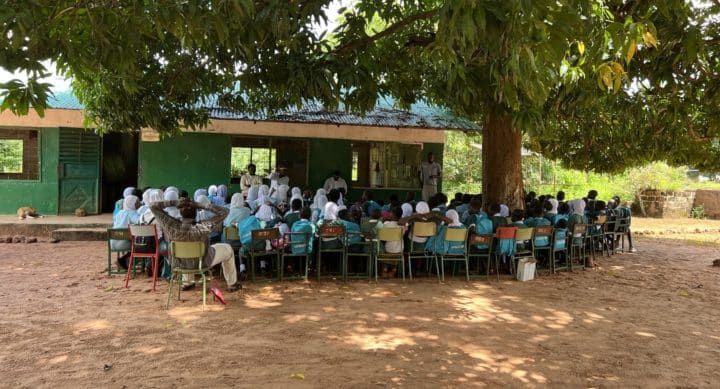Gambiaj.com – (BOGOTA, Colombia) – The Gambia has pledged to end corporal punishment in schools as part of a global effort to eradicate violence against minors. The commitment was announced in conjunction with other nations ahead of the inaugural United Nations Ministerial Conference on Violence Against Children, held on November 7-8 in Bogotá, Colombia. The Gambia’s promise aligns it with countries taking progressive steps to ensure a safe and supportive environment for young people.
Alongside Nigeria, which also pledged to end corporal punishment in schools, The Gambia joins a group of nations actively working to eliminate violent disciplinary practices. Panama, Kyrgyzstan, Uganda, Burundi, Sri Lanka, and the Czech Republic have all committed to fully banning corporal punishment, a widespread form of violence affecting millions of children globally. According to the World Health Organization (WHO), these recent pledges are expected to positively impact approximately 150 million children worldwide.
Dr. Etienne Krug, director of the department for social determinants of health at WHO, stated that corporal punishment is “something from another time” and urged for its global prohibition. Research overwhelmingly associates corporal punishment with long-term harm, including negative mental health outcomes, impaired cognitive and educational development, and increased aggression in children. Advocates argue that such practices teach children that violence is an acceptable solution to conflict, reinforcing a cycle of harm that can have severe, lasting effects.
At the UN conference, Gambia’s commitment was part of a broader set of initiatives to advance child welfare in the country. Plans to pass a comprehensive Children’s Act were also announced, promising legal frameworks to protect children from various forms of abuse. Additionally, the Gambia, along with Colombia and Estonia, vowed to address child safety online, reflecting a holistic approach to child protection in the digital age.
Campaigners and youth advocates applauded these commitments but stressed that global action must be accelerated to meet the UN’s Sustainable Development Goal of eliminating all violence against children by 2030. While strides are being made, violence against children—spanning corporal punishment, bullying, and sexual abuse—remains prevalent worldwide, affecting approximately one billion young people annually.
Bess Herbert, an advocacy specialist at End Corporal Punishment with WHO, remarked that the pledges represent a “fundamental shift” in global attitudes toward child protection. “It’s a strong signal to the rest of the world that this is the direction we are going,” she said. Youth activists, including Bryanna Mariñas from the Philippines, emphasized the importance of involving young voices in shaping policies that affect their lives, calling for genuine opportunities for children to influence decisions on violence prevention.
The Gambia’s pledge reflects a significant commitment to ending violence against children and aligns the nation with a growing international movement toward more humane and effective disciplinary practices. As the world gathers in Bogotá to discuss strategies for eradicating violence against children, The Gambia’s proactive stance reinforces its dedication to ensuring a safer future for its youngest citizens.










